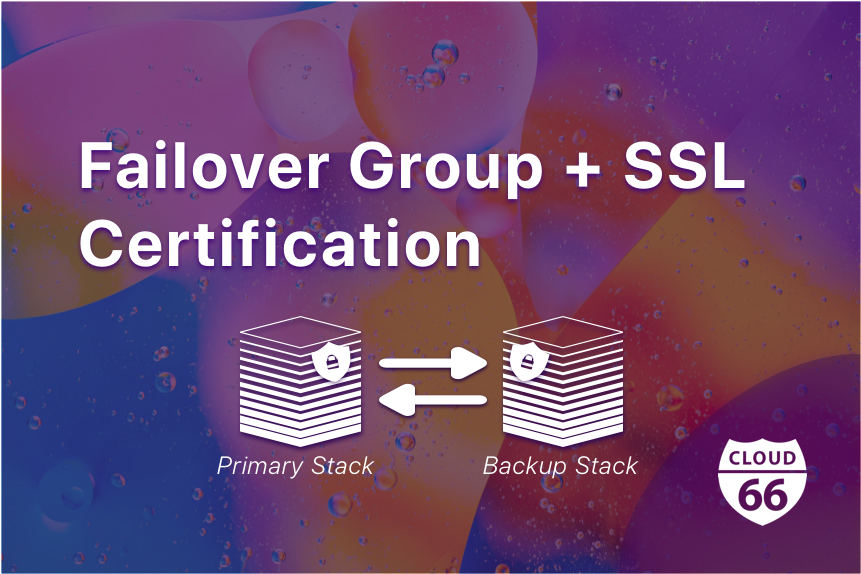
Failover Groups Overview:
Failover Groups allow you to quickly and easily switch traffic between different instances of your application. Essentially, a Failover Group is a managed quick response DNS address that automatically follows your application's web endpoints. You can connect it to up to two applications at any time - a primary and backup application.
Using Failover Group is like making backups of your laptop: you need to do it before you need to use it! Having a Failover Group for each of your applications will allow you to recover from downtime much more quickly.
You can set up Failover Groups for all your Rails, Node and Maestro applications.
When would you use Failover Groups?
Failover Groups are useful in the following scenarios:
Application resilience: by building and nominating a secondary (backup) application on a different cloud provider or data center you can protect against a major outage of any one cloud provider or region. A Failover Group allows you to switch your visitors across to the backup instance in just a few minutes.
Cloning applications: if you need to clone or rebuild your application, you can use a failover group to switch your traffic to the new application without interruptions to your service.
Reducing the risk of downtime: having a Failover Group helps prevent unwanted downtime should your primary application become unresponsive, creating a seamless, always-on user experience.
Using Failover Group with SSL certificates.
Failover Groups help thousands of developers to swiftly switch traffic between applications. However, there have been some challenges around SSL certificates. For example if the certificate is not kept up to date on the backup, or if developers are using Let's Encrypt, this can cause errors that prevent users from accessing the application.
To resolve these issues, we now automatically transfer your SSL certificates when you switch traffic between applications. This includes an automatic renewal when you switch traffic to your backup application using your Failover Group.
For more information visit our help page.
